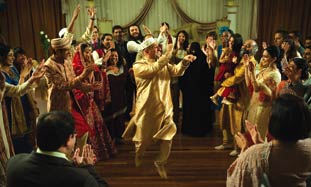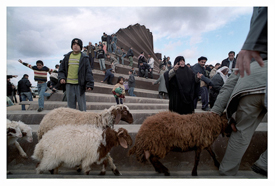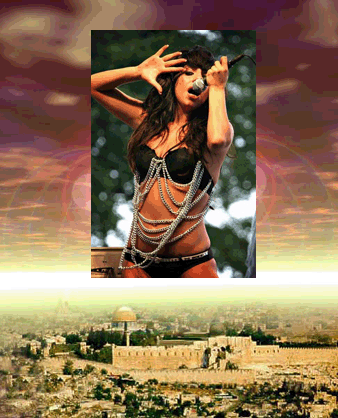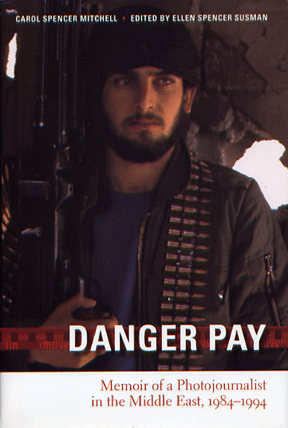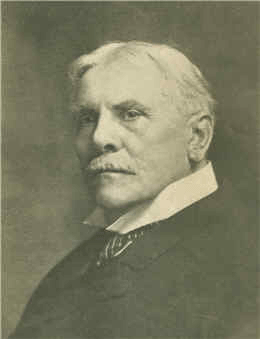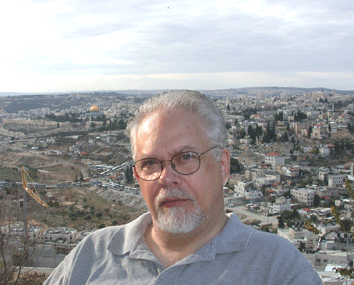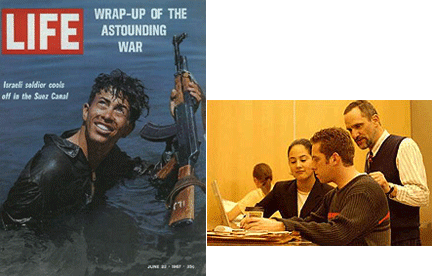
left, 1967 cover of Life Magazine; right, Dr. Alan Singer in the classroom
How I Almost Became a Terrorist
Not Everyone Who Opposes U.S. Policy is a Fanatic
By ALAN J. SINGER, CounterPunch via Maiz Centeotl Chicomecoatl, January 7, 2010
In May 1967 I was a seventeen-year old high school senior and a not particularly religious Jew. I was born in New York City, as were my parents, although my grandparents were immigrants from Eastern Europe. My family strongly identified with the state of Israel and at the time my stepmother was visiting her brother who had emigrated there to fight for independence after serving in the U.S. army during World War II.
The survival of Israel as a Jewish state was important to my identity and the identity of my friends and family members. My friends, siblings, cousins, and I grew up in the shadow of the Holocaust and we had family members who were murdered. Jews had been victims for two thousand years but the survival of Israel meant we would be victims no more.
As the crisis in the Middle East intensified Americans were evacuated. My father and I spent a night at Kennedy Airport waiting for my stepmother to return home. The next morning two friends and I went to the Jewish Agency to sign up to go to Israel as volunteers in the event of war. We hoped to fight but said we would do anything that was needed.
On June 5, 1967 Israel launched a preemptive strike. The Third Arab-Israeli War lasted six days and ended with a resounding Israeli victory. American volunteers were not needed so we never went. But we would have gone and we would have fought for the survival of Israel and of Jews, whether the United States government gave permission, looked the other way, or even if it tried to stop us.
I am no longer a Zionist and I have not supported Israeli policy, especially the occupation of the West Bank and Gaza, since the 1973 Arab-Israeli War. I now see Israel as the aggressor in the region, but that is not the point. Continue reading How I Almost Became a Terrorist →
